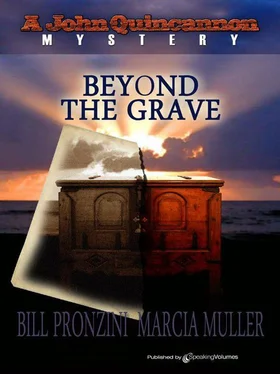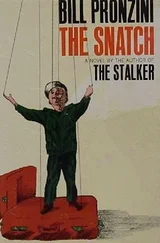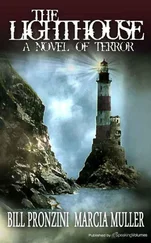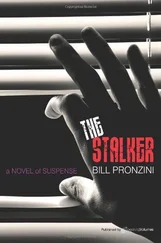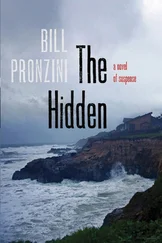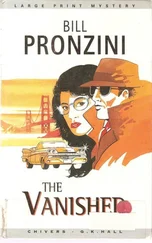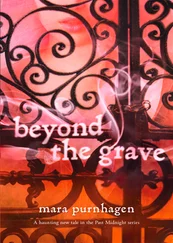Bill Pronzini - Beyond the Grave
Здесь есть возможность читать онлайн «Bill Pronzini - Beyond the Grave» весь текст электронной книги совершенно бесплатно (целиком полную версию без сокращений). В некоторых случаях можно слушать аудио, скачать через торрент в формате fb2 и присутствует краткое содержание. Год выпуска: 2011, ISBN: 2011, Издательство: Speaking volumes, Жанр: Исторический детектив, на английском языке. Описание произведения, (предисловие) а так же отзывы посетителей доступны на портале библиотеки ЛибКат.
- Название:Beyond the Grave
- Автор:
- Издательство:Speaking volumes
- Жанр:
- Год:2011
- ISBN:9781612321202
- Рейтинг книги:4 / 5. Голосов: 1
-
Избранное:Добавить в избранное
- Отзывы:
-
Ваша оценка:
- 80
- 1
- 2
- 3
- 4
- 5
Beyond the Grave: краткое содержание, описание и аннотация
Предлагаем к чтению аннотацию, описание, краткое содержание или предисловие (зависит от того, что написал сам автор книги «Beyond the Grave»). Если вы не нашли необходимую информацию о книге — напишите в комментариях, мы постараемся отыскать её.
Beyond the Grave — читать онлайн бесплатно полную книгу (весь текст) целиком
Ниже представлен текст книги, разбитый по страницам. Система сохранения места последней прочитанной страницы, позволяет с удобством читать онлайн бесплатно книгу «Beyond the Grave», без необходимости каждый раз заново искать на чём Вы остановились. Поставьте закладку, и сможете в любой момент перейти на страницу, на которой закончили чтение.
Интервал:
Закладка:
Manzanita Way turned out to be a block-long street within walking distance of Santa Monica's beach, and it actually had manzanita growing alongside it. The evergreen shrubs were in full bloom, and their waxy bell-like flowers were a subtle contrast to the showier yellow blossoms of the forsythia bushes in many of the yards. The houses were typical California stucco bungalows like my own, but they sat farther back from the street and many were on double lots. Mrs. Manuela's address was 1121 A, which meant she probably occupied a cottage behind one of the larger homes. I parked at the curb under a big purple-flowered jacaranda tree and found a concrete path leading between numbers 1121 and 1119. There was a second building back there, built on the style of the main house and containing two units. I knocked on the door of unit A, and it was soon opened by a small, very old white-haired woman in a pink candy-striped dress. Her seamed mouth curved up in a smile when she saw me, and her eyes began to sparkle behind silver-rimmed glasses.
“Senorita Oliverez?” she asked.
“Si”
“Buenas tardes.” She held the screen door open and motioned for me to come in. “Por favor.”
I stepped into a tiny living room that was decorated in blue-and-green floral-patterned wallpaper; the furnishings were upholstered in a Wedgwood blue. Two tortoiseshell kittens lay on one cushion of the loveseat, curled in a yin-and-yang position, and a third was licking its paws on a hassock. The room was clean and uncluttered, and everything in it-including Mrs. Manuela-seemed diminutive. I sat down on the love seat at her request, feeling strangely big and awkward, in spite of being a slender five-foot-three.
Mrs. Manuela said, “Lo siento .… I am sorry. Do you wish to speak in English?”
In Spanish, I replied, “I am at home in either language.”
“Then, we will speak Spanish. As I grow older, I find the language of our people comforts me. In it, I know who I am. And since your interest in my family is what has brought you here, it is fitting.” She moved toward a door at the rear of the room. “I have coffee brewing. Will you have some?”
“I'd like that, thank you.”
“Then I will bring it. While I am gone, you may make the acquaintance of Laurel and Hardy and Chaplin.” She indicated the kittens. “They are: Hollywood cats, abandoned there and rescued by a young friend of mine. And they are all comics.”
I smiled as she left the room and got up to pat Chaplin, the one who was licking his paws. He may have been a comic, but right now he seemed to have misplaced his sense of humor, because he glared at me and went on licking. I decided not to bother Laurel and Hardy, who were still sleeping.
Mrs. Manuela returned in a few minutes with a pot of coffee and two mugs-blue, like the room. She poured the steaming liquid, handed me one mug, and said, “Do you wish cream or sugar?”
“Neither, thank you.”
“Good. You will live a longer life for abstaining.”
Por Dios , I thought, she's a health nut like Nick. And-again like him-her appearance indicated she knew what she was talking about. She had to be in her nineties, but she moved like a much younger person.
She sat in a chair opposite the love seat, tasted her coffee, and then nodded approval. “I have a new percolator,” she said, “and I am only learning how to use it. This is good, is it not?”
“Very good.”
Looking pleased, she set her mug on a coaster on the table beside her and said, “Now. You are interested in my family.”
“Yes.” I had thought of ways to explain what otherwise seemed like plain nosiness and had come up with a story that had the advantage of being at least partially true. “I am assisting a historian who lives in the village of Las Lomas in writing a paper for a journal.”
She nodded. “Mr. Sam Ryder, who is a neighbor of Rosa Jenkins.”
“That's right. So far I've done little more than visit the land you own near the village-what remains of the rancho.”
Mrs. Manuela's face gentled when I mentioned the rancho, and her eyes softened until they had a misty quality. “Rancho Rinconada de los Robles. The land you speak of is the old pueblo and the site of the hacienda.”
“I understand you still own the property.”
“Yes. I doubt I could ever bring myself to part with it. But frankly, no one has asked me to. While the rest of the rancho-those portions that were sold off many years ago-is excellent agricultural land, the pueblo itself is good for nothing. Don Esteban Velasquez-my grandfather-built the rancho as he did so as not to waste usable land. The pueblo was in a rocky area, as you have seen; the hacienda stood on a hill above. My father, Felipe Velasquez, claimed that Don Esteban loved the site because it reminded him of his native home in Oaxaca, Mexico.”
“Did you live at the hacienda when you were a girl?”
“For a time, yes. But my father died when I was very young, and my mother and I moved to Santa Barbara. I was not there for very long, either. When I became of school age, my mother became concerned about me. I was not a happy child, and did not make friends easily. In fact, my only playmate was Rosa Jenkins-she was Rosa Santiago then, daughter of our servant, Maria. Finally my mother decided to send me to the school my father had attended in Mexico.”
Mrs. Manuela paused and smiled faintly. “I was so shy that I would not go alone, so my mother had to send Rosa with me. She received a good education on account of my backwardness, and we have been friends all our lives.”
I said, “Why did you and your mother leave the hacienda?”
“It was very lonely there after my father's death. He was a great man, and my mother loved him very much. Maria Santiago once told me that before my father died, my mother was a very strong woman. Too strong, perhaps, because she and my father fought frequently. But after we moved, she became more and more withdrawn and reclusive. I have always suspected that she sent me away because secretly she wanted to be alone.”
“What happened to her?”
“She died-those of my generation would say of a broken heart-when I was sixteen and still at school. Although I had seen her only on vacations, I was shattered by the loss. I had no one left in the world but a stuffy old family lawyer who was to dole out what I considered stingy payments from the estate. I started to pine away, as was fashionable with young girls in that day.”
The cat on the hassock-Chaplin-stood up and jumped into Mrs. Manuela's lap. She pushed it into a lying-down position and began to stroke it, continuing as if there had been no interruption. “One day, Rosa decided she had had enough of my languishing. She came to me and said, ‘Look, we are all alone in the world’-her mother had also recently died-‘and we are of age, so let's do something daring. Let's run off to Los Angeles and get jobs and find ourselves husbands.’ Naturally I was shocked-but not so shocked that I didn't think about it. And within a week we were on our way north.”
I said, “ Did you get jobs and find husbands?”
She smiled gently. “We did. Not the jobs we'd envisioned, of course; we did not become silent-movie queens. But we did make ends meet, working as shopgirls in the barrio and living in a rooming house run by a kindly woman who liked young girls and looked after them. Rosa met Tom Jenkins first; he was an Anglo, but that didn't matter-Rosa always was daring. Ironically, Tom was from Lompoc, he owned a drugstore there. The store prospered, and he bought her a little summer home in Las Lomas, and when he died, she moved up there for good.”
“And you?”
“My husband was called Tom also. We met at a dance and married within a month. Then we moved here because both of us had always wanted to live close to the sea. Tom was a good provider; he worked for a warehouser, the same one for forty years. We were able to buy this property cheaply, and with his salary and what was left of my family's money and the rental from these units, we had a fine life. My only regret is that we never were able to have children. Tom has been gone sixteen years now, and I miss him as if he had died yesterday.”
Читать дальшеИнтервал:
Закладка:
Похожие книги на «Beyond the Grave»
Представляем Вашему вниманию похожие книги на «Beyond the Grave» списком для выбора. Мы отобрали схожую по названию и смыслу литературу в надежде предоставить читателям больше вариантов отыскать новые, интересные, ещё непрочитанные произведения.
Обсуждение, отзывы о книге «Beyond the Grave» и просто собственные мнения читателей. Оставьте ваши комментарии, напишите, что Вы думаете о произведении, его смысле или главных героях. Укажите что конкретно понравилось, а что нет, и почему Вы так считаете.
